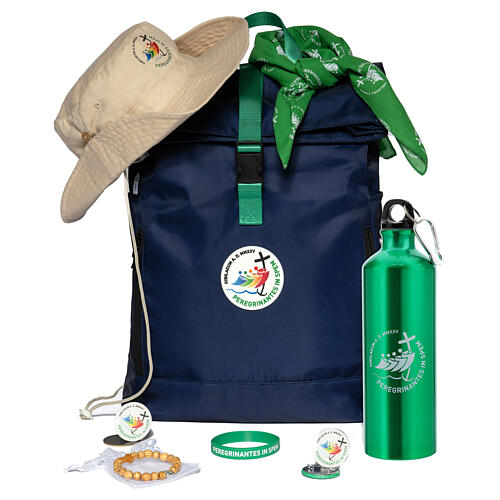Pumps for nativity scenes, essential accessories to create suggestive effects of moving water for our nativity scene. Let’s find out how to choose the one that best suits our needs.
Contents
Time to think about the Nativity scene, how to make it, how to make it unique and truly special. And if we plan to enrich it with a river with flowing water, or a waterfall, a whispering fountain, or any element with moving water, do we know how to move among the many crib pumps available on the market?
What are they?
First of all, let’s try to clarify what nativity pumps are. These are small motor pumps that draw water from a tank and allow it to be recycled in a defined circuit. They are available in different sizes and with different performances.
There are immersion pumps, usually smaller, which are positioned directly inside the container that will accommodate the water to be moved, or larger external pumps, which can create much more complex and evident aquatic effects.
The water pumps for Nativity are essential for the construction of fountains, streams, and waterfalls.
In our catalogue, in addition to a wide range of pumps, you will also find gear motors, motors and pulleys for mills and moving statues, as well as accessories of all kinds to create your realistic nativity scene.

Why is water so important for the Nativity scene?
Those who choose to make a do-it-yourself nativity scene usually do so moved by the desire to represent an ideal place, a fairytale setting and yet inspired by real places of antiquity, well-known settings. In the tradition of our country, the nativity scene is usually set in an ancient village, which in the Neapolitan nativity scene, in particular, takes on the connotation of a village of the 1700s.
Just talking about the Neapolitan nativity scene, and in particular explaining how to create a nativity scene with a waterfall in a few simple steps, we focused on the symbolic importance of water in the nativity scene. In fact, everything in the Neapolitan crib has a very deep and important symbolic meaning, and even water is no exception. Whether represented by a river, a waterfall, a pond, it refers to the origin of everything. Water contains the power of life and that of death, and the eternal cycle that involves both, purification and rebirth, the passage of time, the passage of souls from the world of matter to that of the spirit. This gives us a measure of how useful water pumps can be in creating the Nativity scene!
Inserting water into our Nativity scene can become something much more significant than wanting to add a simple setting detail. Even if we choose to place our Nativity more realistically in Bethlehem, located in desert territory, we could decide to enrich the Nativity with a small oasis, using a simple pond pump.
How to choose the Nativity scene pumps?
But how to choose the nativity pump that best suits our needs? What characteristics need to be kept in mind? What is the difference between fountain pumps and pond pumps?
When we choose the pump for our Nativity scene we have to look at two things: the pump flow rate and the pump head.
Flow rate is simply how much water the pump can push. In fact, there are pumps with a lower or higher flow rate, which can handle very different quantities of water. Depending on whether we want to feed a fountain or a waterfall this feature will become very important to consider. Our pumps are equipped with a flow regulator, which allows you to increase or decrease the flow rate of the pump itself.
The prevalence of a pump is instead the maximum height in which we can place our scenographic element, be it a stream, a waterfall, a fountain, compared to the basin that contains the water, to ensure that the water continues to flow. without problems. For example, if we use a pump that has a head equal to 50 cm and we position the water pipe at a height of less than 50 cm, the water will flow smoothly, but the higher we get up, the more difficult the water will flow. Beyond 50 cm it will no longer be able to rise and therefore the flow will stop.
So we will have to choose our pump on the basis of our actual needs, considering how much water we want to move. For example, to move a fountain, a small fountain pump, with a low pump capacity, will be sufficient. On the other hand, to feed a waterfall, we should choose a pump with a higher flow rate and also evaluate at what height to place the fountain itself based on the prevalence of the pump.
Our crib pumps are all very quiet: by turning them on you will not hear the noise of the engine, but only that of the flowing water.
Water pump maintenance
The nativity scene pumps in our catalogue are equipped with a mechanism that is difficult to break.
To ensure that the pumps always work in the best way, they must be completely immersed in water when they are used. They are in fact made specifically to be used in this way, and only by doing so, we can be sure that they do not overheat. By immersing them in water, the pumps will not burn, will not break and will always continue to work. For this purpose, our pumps are equipped with small suction cups that allow them to adhere perfectly to the bottom of the tray and not move while they are operating.
Another precaution that will be good to take is to make sure that the limescale and debris do not get stuck in the fan.
Finally, very important for your safety: do not plug in or unplug the pump with wet hands!



















 25 August 2025
25 August 2025






